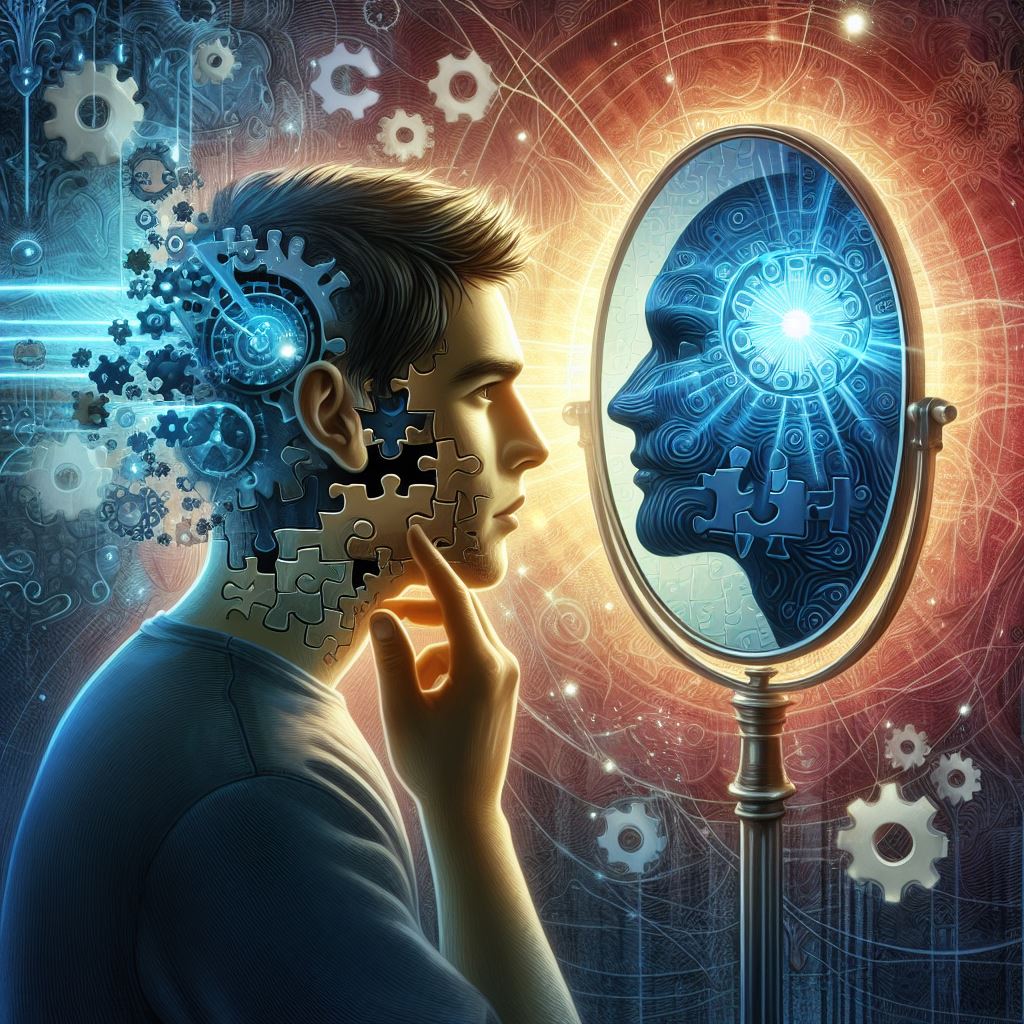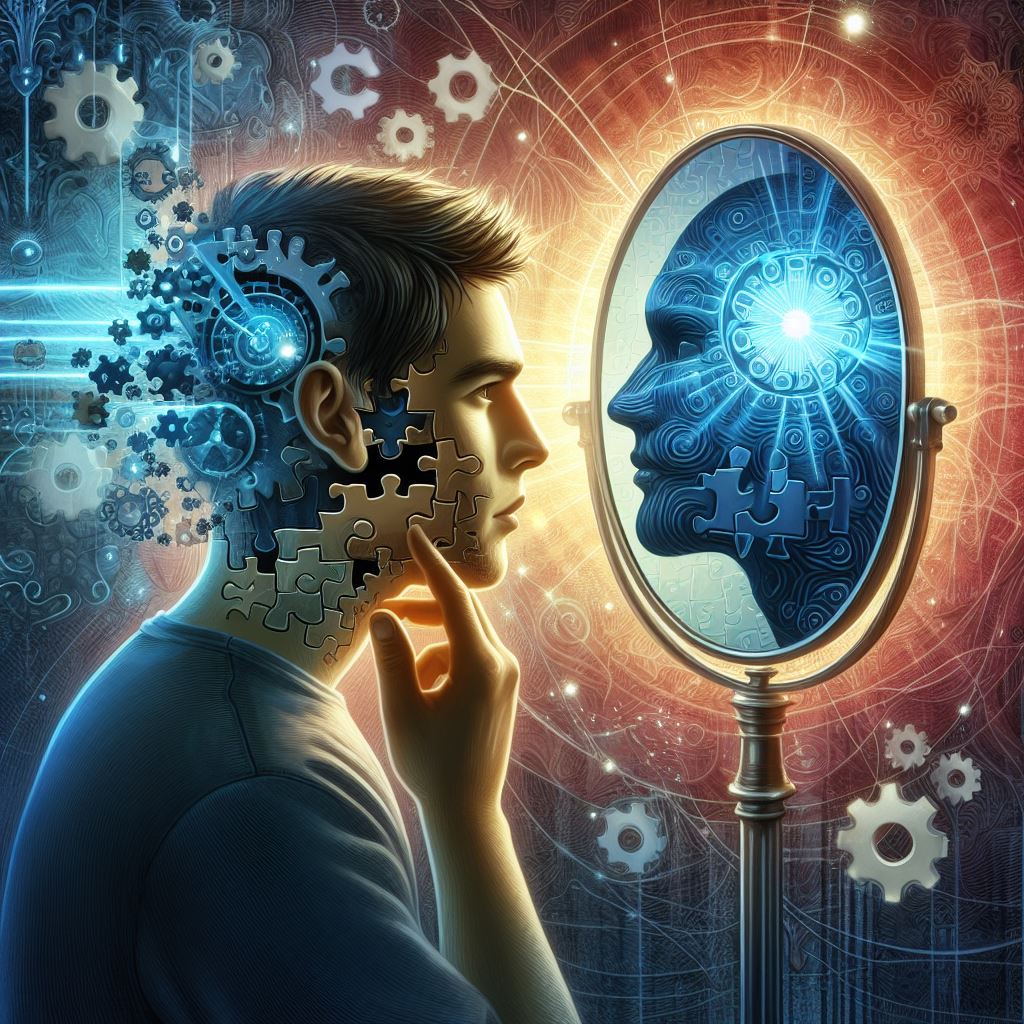Your cart is currently empty!
The paradox of self-awareness and how it pertains to ethics

Self-awareness is the ability to reflect on one’s thoughts, feelings, actions, and motives. It is often considered a key component of human intelligence, creativity, and morality. However, self-awareness also poses a paradox: the more we know ourselves, the more we may doubt ourselves, question our values, and struggle with existential dilemmas.
In this blog post, I will explore the paradox of self-awareness and how it pertains to ethics. I will argue that self-awareness is both a blessing and a curse for ethical decision-making and that we need to balance it with other sources of moral guidance, such as empathy, reason, and intuition.
Self-awareness and ethical challenges
One of the benefits of self-awareness is that it enables us to examine our ethical beliefs and principles and to align our actions with them. By being aware of our moral standards, we can avoid hypocrisy, inconsistency, and self-deception. We can also learn from our mistakes, improve our moral reasoning, and develop our moral character.
However, self-awareness also exposes us to ethical challenges that may not arise for less self-aware beings. For example:
– Self-awareness can lead to moral uncertainty and relativism. The more we reflect on our ethical judgments, the more we may realize that our personal biases, cultural backgrounds, social contexts, and emotional states influence them. We may also encounter conflicting moral perspectives from other people or sources of authority. This can make us doubt the validity and universality of our moral claims and undermine our confidence in making ethical decisions.
– Self-awareness can lead to moral dilemmas and trade-offs. The more we consider the consequences of our actions, the more we may face situations where there is no clear or optimal ethical choice. We may have to balance competing values, interests, rights, and duties, or choose between the lesser of two evils. We may also have to sacrifice some of our personal goals or preferences for the greater good or a moral duty.
– Self-awareness can lead to moral distress and guilt. The more we evaluate our actions against our ethical standards, the more we may realize that we have failed to live up to them. We may feel remorse for harming others, violating their rights, or regret missing opportunities to do good or fulfill our obligations. We may also feel responsible for the suffering or injustice in the world that we cannot prevent or alleviate.
Balancing self-awareness with other sources of moral guidance
How can we overcome the paradox of self-awareness and make ethical decisions in a complex and uncertain world? I suggest that we need to balance our self-awareness with other sources of moral guidance that can complement and correct our self-reflection. These sources include:
– Empathy: Empathy is the ability to understand and share the feelings of others. It can help us to appreciate the perspectives and experiences of those who are affected by our actions, and to respect their dignity and autonomy. Empathy can also motivate us to care for others and to act compassionately.
– Reason: Reason is the ability to use logic and evidence to evaluate arguments and claims. It can help us to avoid fallacies and biases in our moral reasoning, and to justify our ethical judgments with rational grounds. Reason can also help us to resolve moral conflicts and dilemmas by applying universal principles and rules.
– Intuition: Intuition is the ability to sense or know something without conscious reasoning. It can help us to access our subconscious moral values and instincts, and to act spontaneously and authentically. Intuition can also alert us to potential moral problems or opportunities that we may otherwise overlook.
What is the difference between empathy and intuition?
Empathy and intuition are both forms of emotional intelligence that can inform our ethical decision-making. However, they are not the same thing. Empathy is based on understanding the feelings of others, while intuition is based on sensing our feelings. Empathy requires perspective-taking and communication skills, while intuition requires self-awareness and trust in one’s gut feelings. Empathy can help us to empathize with others’ moral views, while intuition can help us to express our moral views.
Conclusion
Self-awareness is a valuable but paradoxical trait for ethics. It can help us to align our actions with our ethical standards, but it can also expose us to ethical challenges that may shake our moral confidence. To overcome these challenges, we need to balance our self-awareness with other sources of moral guidance, such as empathy, reason, and intuition. By doing so, we can make ethical decisions that are not only consistent with ourselves but also respectful of others.
